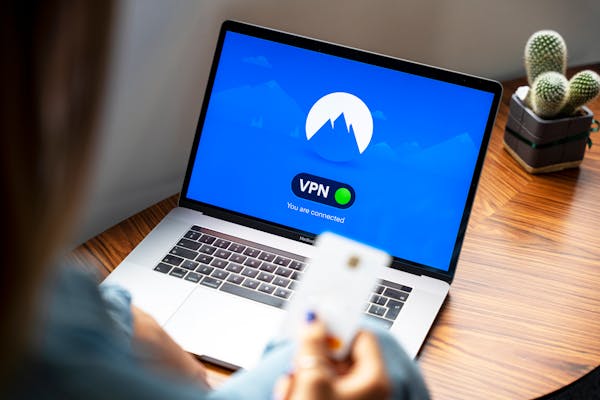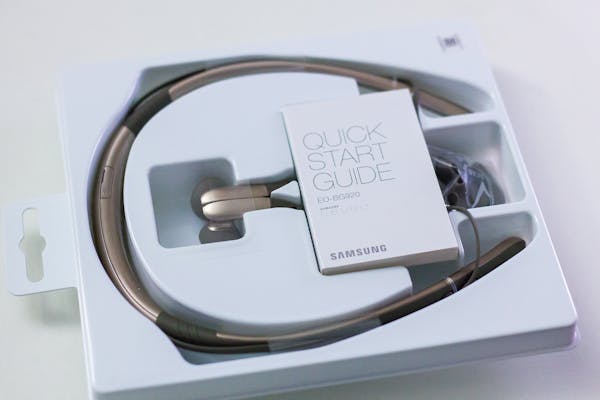Amazon executives have discussed ditching Amazon Basics to appease antitrust regulators
[ad_1]
Amazon celebrated the largest Key Working day in the gross sales event’s eight-yr background early this week. But the function was followed just several hours afterwards by news of a sequence of important proposed improvements to how Amazon does organization in Europe aimed at settling accusations by regulators that Amazon engages in anti-aggressive behavior.
Amazon’s proposed concessions include things like providing much more visibility to listings from several sellers for a provided solution so customers have extra preference. They also prohibit the corporation from using any non-general public data from Amazon sellers to raise Amazon’s own retail organization, together with its personal-label makes.
But Recode has discovered that prime Amazon leaders have also internally mentioned making a much more drastic transfer to ward off regulators: abandoning its non-public-label company altogether. At least as just lately as final year, a number of major Amazon executives, which include its present around the world retail CEO Doug Herrington and its standard counsel David Zapolsky, expressed a willingness to make this different but significant change if it meant staying away from likely severe solutions resulting from authorities investigations in the US or overseas, in accordance to a resource with know-how of the conversations.
Amazon’s non-public-label business enterprise incorporates homegrown brands like Amazon Fundamentals, which sells almost everything from garbage bags to batteries to workplace chairs, as nicely as the garments line Amazon Essentials. The organization line also features manufacturers that never have the Amazon title, such as the paper-items label Presto, the foods model Joyful Tummy, and the style line Goodthreads. This kind of a concession would not implement to the company’s possess gadget strains, which include Kindle, Echo, and Hearth Television set units. Amazon’s use of private-label brand names has come beneath fireplace from politicians and regulators not just simply because they exist, but due to the fact of the info Amazon leverages to generate them and the methods it takes advantage of to favor them in research benefits on its browsing web-site and app.
“There was a strong consensus that this could be a practical alternative if the corporation was ever pressed into a place where it had to negotiate a settlement,” the source informed Recode. This particular person asked for anonymity simply because they were not licensed to disclose interior discussions.
Amazon spokesperson Betsy Harden explained the organization has not “seriously considered” shuttering the private label small business and proceeds “to commit in this space, just as our a lot of retail opponents have completed for many years and carry on to do nowadays.”
Early on Friday, the Wall Avenue Journal claimed that Amazon has been reducing back on its private-label collection.
The discussions at Amazon close to abandoning its non-public labels transpired on and off for several yrs as scrutiny of the business line heightened, the source mentioned, with executives expressing a wish to continue to keep this prospective solution underneath wraps so that it could occur throughout to regulators as a important concession. Leaders in favor of such a decision thought that Amazon experienced a ideal to offer personal-label brand names as several stores do, but that the small business was not strategically vital sufficient to defend in the facial area of far more extreme opportunity cures sought by antitrust enforcers. When a company like Amazon provides this sort of a concession, it does so with the hope of closing down any present-day investigations.
“One goal of negotiations is to arise from the overhang of inquiries completely,” Monthly bill Kovacic, a former FTC chairman, informed Recode. “It indicates all of this goes away.”
Amazon has stated that its private-label models account for a reduced-one-digit proportion of over-all item gross sales in its on the net retailers. But they are still without doubt a substantial source of gains for Amazon’s retail business enterprise, in element simply because the company does not have to devote a ton on marketing like an exterior model does. At competing retailers like Walmart, Costco, and Target, in-property brand names account for a greater share of overall income. As of 2019, the biggest affect of Amazon’s private-label organization was felt in the so-known as “softlines” class, which incorporates items like clothing and bedding. In that room, Amazon’s have makes accounted for 9 p.c of the company’s to start with-occasion profits in that classification, Amazon disclosed to Congress in 2020.
Amazon continuously downplayed the significance of its non-public-label company in testimony and communications with Congress throughout its Big Tech investigation of 2019 and 2020. The Federal Trade Fee, 1 of the two most important US antitrust enforcement businesses, has been probing Amazon since 2019 but has but to validate an investigation or file a lawsuit towards the organization. The company is now operate by chairwoman Lina Khan, who in 2017 penned a legal paper termed “Amazon’s Antitrust Paradox.” In it, Khan argues that the framework for antitrust enforcement over the past 40 many years — which normally offers a go to organizations featuring very low price ranges or well-known services to buyers — has not accounted for the harms to competitiveness that digital gatekeepers like Amazon pose. Khan also played a very important job as lawful counsel for the Household Antitrust Subcommittee’s 16-thirty day period investigation into the Massive Tech giants and in manufacturing the 400-web site Household Democrat stories, which alleged that all 4 of the best US tech giants engage in anti-competitive practices and need to have to be reined in.
Amazon is also a person of the principal targets of the American Innovation and Alternative On the web Act, which is being championed by Sen. Amy Klobuchar and Rep. David Cicilline. The “self-preferencing” laws would give regulators the authority to sue the tech giants for company methods that favor their have items and services in excess of individuals of third functions that do organization on their platforms or that use non-public facts from their have customers to benefit their have providers. Amazon’s use of non-public data, which include revenue figures, has drawn accusations that Amazon works by using this variety of information and facts to copy bestselling products and solutions.
Amazon has fought the monthly bill aggressively, funding advertisement campaigns that make the questionable argument that, if handed into regulation, the American Innovation and Alternative On the internet Act would split Amazon Prime. The bill’s supporters are however waiting around for Senate Majority Leader Chuck Schumer to routine it for a complete Senate vote right before the ramp-up to November’s midterm elections.
Whilst it’s unclear what American lawmakers and regulators will do following, some of Amazon’s proposed concessions to antitrust officers at the EU’s European Fee appear to be to fall in line with some of the objectives of the US self-preferencing monthly bill.
For illustration, Amazon instructed the European antitrust commission that it would bar its personnel and laptop units from using “non-public” information from Amazon sellers — irrespective of whether from an specific vendor or a team of sellers — to assistance Amazon’s first-bash retail enterprise. This initial-celebration enterprise is made up of products that Amazon buys at wholesale selling prices from other models and resells to shoppers as nicely as non-public-label manufacturers like Amazon Fundamental principles that Amazon will make and sells alone.
Which is the to start with of 5 important concessions, together with three similar to Amazon Prime. The initial of the Prime-relevant changes would allow sellers qualify for the Prime badge, even if they never use Amazon’s warehousing and shipping assistance known as Achievement by Amazon (FBA) — Amazon has authorized a tiny proportion of sellers to do this in current a long time, but it has designed it increasingly tough to do so, meaning that the extensive bulk of sellers want to use FBA to make the Primary badge for their goods. A 2nd would prohibit Amazon from working with information and facts gathered via Primary about the performance or rates of outside logistics suppliers to advantage Amazon’s have logistics and delivery small business. The previous Key-linked proposal would see Amazon no lengthier issue the Key badge into the algorithm that decides which organization — irrespective of whether it’s Amazon or one particular of the third-get together retailers selling by means of Amazon — wins a specified sale when a buyer queries for a merchandise that is sold by many get-togethers.
At last, Amazon has proposed exhibiting two various “Buy Boxes”to give additional visibility to product listings from unique sellers when they are marketing the same item at unique price ranges or delivery speeds. These days, Amazon consumers throughout the world have to simply click on a small tab to see purchasing selections other than the 1 that Amazon’s algorithm chooses as the Purchase Box winner.
This is how Amazon may insert a second “Buy Box” on its app as section of concessions its available to the European Union to close antitrust investigations https://t.co/IuaJyR7eC8
— Jason Del Rey (@DelRey) July 14, 2022
Now that Amazon’s European proposal is community, firms impacted by the way Amazon does enterprise have till September 9 to deliver suggestions on the concessions. The European Fee will then decide regardless of whether to take Amazon’s concessions or thrust for variations or additions to the proposal.
There is at this time no sign that the European regulators want Amazon to quit all profits of its private-label goods. However, we now know that some prime Amazon executives have regarded the added benefits of these a shift, and it continues to be to be observed how they would respond to improved tension from American regulators. Possibly way, proof is mounting that Amazon is getting antitrust threats significantly.
[ad_2]
Resource hyperlink







